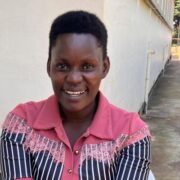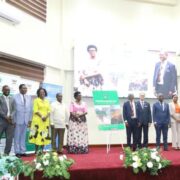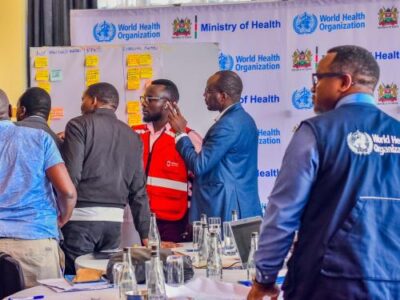
Lusaka – Titus Mwanza switched from farming tobacco to cultivating diverse crops such as soybeans, sunflowers, groundnuts and maize four years ago, after his family faced health and economic challenges associated with tobacco farming.
“What made me to stop tobacco farming is the problems that were in my family and the profits were not good,” he says. “The diseases involved in tobacco, cancer… those who smoke experience different types of diseases,” says Titus.
Titus’s commitment to change was strengthened in 2023 by an exchange visit to Migori, Kenya, where in 2022, World Health Organization and partners launched the Tobacco-Free Farms initiative, which supports tobacco farmers to switch to alternative crops.
On his return, he focused on educating former tobacco farmers about sustainable and profitable alternative crops and better nutrition. In his community, Titus emphasizes the health benefits and economic advantages of alternative crops, which not only provide sustenance but also boost community health by reducing tobacco-related diseases.
“I encourage that we eat what we farm,” he says. “We farm maize that we eat, then cowpea, we eat, we make milk out of soya beans, we also make sausages out of soya beans, these are all food. Tobacco is not food.”
Titus highlights significant improvements in his and his family’s health since leaving tobacco farming. His quality of life has improved, he says, pointing out that he no longer experiences the health issues that plagued his family during his tobacco farming years. He hopes to encourage more farmers to transition from tobacco farming to healthier profitable crops.











Comments